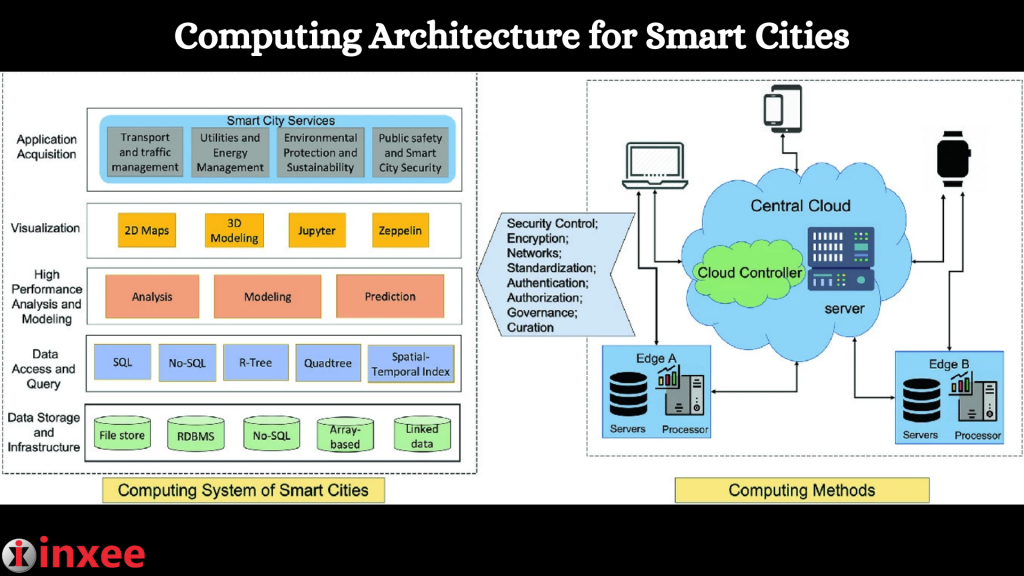Computing Architecture for Smart Cities

In the context of smart cities, general computing modules refer to the essential computing components and capabilities that are used to support various functions and applications. Here are some common general computing modules used in smart cities:
Cloud Computing: Cloud computing enables the storage, processing, and analysis of large amounts of data generated by smart city systems and devices. It provides scalability, accessibility, and cost-effectiveness for deploying and managing smart city applications and services.
Edge Computing: Edge computing brings computation and data storage closer to the devices and sensors at the edge of the network. It enables real-time data processing, reduced latency, and improved security by processing data locally rather than sending it to a centralized cloud infrastructure. Edge computing is particularly useful for time-sensitive applications such as traffic management and emergency response systems.
Internet of Things (IoT) Platforms: IoT platforms provide the necessary infrastructure to connect, manage, and control IoT devices deployed in smart cities. They enable device management, data collection, and integration with other systems for monitoring and controlling various aspects of urban infrastructure, such as street lighting, waste management, and environmental monitoring.
Data Analytics and Artificial Intelligence (AI): Data analytics and AI technologies play a crucial role in extracting valuable insights from the vast amount of data collected in smart cities. These modules enable predictive analytics, anomaly detection, and optimization algorithms to improve operational efficiency and decision-making in areas like energy management, traffic optimization, and public safety.
Open Data Platforms: Open data platforms provide a standardized framework for sharing and publishing data collected by smart city systems. These platforms facilitate transparency, innovation, and collaboration by making data accessible to government agencies, businesses, researchers, and the public. Open data platforms encourage the development of applications and services that leverage the available data to improve urban life.
Integration and Interoperability: Interoperability modules ensure seamless integration and communication between various smart city systems, applications, and devices. Standards and protocols are implemented to enable interoperability and data exchange between different vendors and technologies, allowing for a cohesive and connected smart city ecosystem.
These general computing modules provide the foundation for building and operating smart city infrastructure and applications. They enable the efficient processing, analysis, and integration of data to drive intelligent decision-making, optimize resource utilization, and enhance the overall quality of life in cities.









Leave a Reply